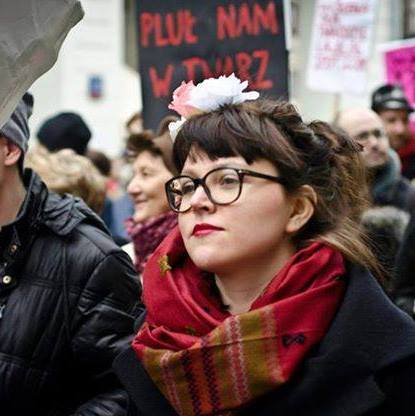
ANALYSIS For years now, steps have been taken to erode rule of law in Poland. The European Court of Human Rights has criticized the Government for unlawful breaches in the procedures in appointing judges to the Constitutional Court, and for the handling of the Ombudsman’s Office, a cornerstone in the defence of human rights for all, including free speech and the right to demonstrate.
Following years of harassment from the ruling party which calls itself “Law and Justice”, Adam Bodnar has officially left the Ombudsman Office, ending what must have been the most difficult term in the 32-year-long history of the Third Polish Republic.
On May 21, 2021, Bodnar opened his last parliamentary speech with a short and chilling statement: “I am aware that this will be my last speech at the Sejm in this capacity. I would like to stress that I consider the verdict of the Constitutional Court from April 15, 2021 (to end my term) to be unlawful.
ECHR states that the Polish Constitutional Court is not established by law
The European Court Of Human Rights (ECHR) has expressed criticism regarding the legality of the Polish Constitutional Court and thus also the Court’s decision to end Bodnar’s term in office.
On May 7th 2021 the ECHR issued the harshest ever ruling on the politicization of the Polish judiciary:
“The Court considers that the actions of the legislature and the executive amounted to unlawful external influence on the Constitutional Court. It finds that the breaches in the procedure for electing three judges, including Judge M.M., to the Constitutional Court on 2 December 2015 were of such gravity as to impair the legitimacy of the election process and undermine the very essence of the right to a “tribunal established by law”.”
This is a belated, yet important recognition of the multi-layered paralysis of Polish democratic structures, where the judiciary is gradually becoming increasingly dependent on the executive branch. For the first time, the ECHR openly states that the current composition of the Constitutional Court is unlawful.
A public advocate for citizen’s rights is crucial when rule of law is under attack
After six years of an ever-increasing centralization of power and a year of intermittent Covid-19 lockdowns, Polish citizens need an effective Ombudsman more than ever. Adam Bodnar has had just that courage, as demonstrated in his final address to the Parliament on May 21:
“Over the course of the last five years, many institutions have lost constitutional independence and impartiality. […] Last year alone, our office received 72 000 letters from citizens, which constitutes an increase of 22 percent since 2019.” Bodnar listed dozens of examples of the Ombudsman’s interventions, including legal action against southern municipalities which declared so-called “LGBT-Free zones”; (Lesbian, Gays, Bisexuals, Transgender) where LGBT activists have been beaten and unlawfully detained after the Warsaw events in August 2020. Other cases concern letters from women being detained for peaceful participation in protests against the 2020 anti-abortion verdict of the Constitutional Court.
At the time when Bodnar’s gave his substantial speech, the Speaker of the Sejm interrupted him: ‘Mr Bodnar, please keep it short and to the point. You have been mostly talking about yourself so far, would you stick to your report?’
The Ombudsman has been constantly ridiculed
Politicians from the party Law and Justice have frequently attacked Bodnar, who over the years has been able to stand up for and efficiently defend citizen’s rights in Poland. Bodnar has been ridiculed, mocked and belittled. He has been summoned before the Sejm randomly, often in the middle of the night, and had to deliver his reports to an almost empty chamber. He was routinely allocated ridiculously short timeslots for his presentations by the Speaker of the Sejm, including for his final appearance, when he was given just 5 minutes to summarize his entire 5 years in office.
A recent debate in the Senate on the Ombudsman’s report also took an absurd turn when senator Bogusława Orzechowska attacked Bodnar for being inclined to defend witchcraft:
‘He (Bodnar) would try to defend those cranky witches who spread the religion of death, women who support the killing of helpless little children.’ She added: “He was also an Ombudsman who remained quiet when a German national, a company boss, offended a Polish worker. A man who supported German media owners while claiming he could do nothing to protect Polish fishermen”.
This is a nicely packaged overview of right-wing obsessions: German bosses, unborn babies and armies of cranky witches as enemies to the state.
A politically divided Parliament unable to appoint a new Ombudsman
The Polish Parliament is politically divided, with a PiS-dominated lower chamber and a Senate controlled by the opposition. So far it has been unable to agree on the nomination of Bodnar’s successor. Thus, Poland is left without an Ombudsman, even though, constitutionally speaking, this should be impossible. A parallel can be found in 2010, when the Ombudsman at that time, Janusz Kochanowski died in the plane crash in Smoleńsk and his deputy took over and the office continued to operate.
The future of the Ombudsman office is still unclear. So far, the lower chamber of the Sejm has managed to approve one candidate backed by Law and Justice, Mr. Bartłomiej Wróblewski. It is hard to imagine a more contentious choice given the fact that Wróblewski was personally responsible for a request to the Constitutional Court leading to the infamous ruling from October 2020 and the introduction of a near-total ban on abortion.
Appointing Bartłomiej Wróblewski to Ombudsman’s Office is like appointing Nigel Farage to chair Amnesty International. Unsurprisingly, the Senate blocked this nomination, but the question remains: can any candidate win the support of both chambers? And meanwhile, how many people will be left defenseless against the increasingly centralized, hostile state apparatus?
Strong socially conservative forces challenged by Europe’s most powerful women’s movement
Todays Poland provides a mixed picture. On one hand, the country is led by one of the most socially conservative governments in Europe, on the other hand, it has one of the most powerful women’s movements.
Law and Justice, culturally on the extreme-right, has authorized extensive social transfers, including the 500-zloty child benefit to gain political support from broad groups of voters and the party is now considering introducing a more progressive taxation.
However, political polls consistently show rapidly liberalizing attitudes regarding abortion, LGBT+ rights and sexuality in general. Regrettably, a similar political change within political parties is not to be seen. The support for the Left is oscillating around 6-8 percent and is unlikely to grow to affect the next parliamentary election. And the center-right parties show no genuine interest in addressing minority rights and Konfederacja, a far-right neoliberal party, is constantly growing even if Law and Justice has maintained a stable lead at around 30-31 percent of support.
A shift away from an open society
Professor Ewa Łętowska, a top authority on human rights in Poland, is of the opinion that the country is facing an ‘axiological shift away from the open society’ and that the very foundation of the liberal democracy is dissolving: the majority is increasingly inclined to authoritarian rule. This has definitly been the case under the rule of Law and Justice, when legal action has become more and extremely restricted towards women and sexual minorities.
But it is also true that opposition to the socially conservative forces in Poland are strong and wide-spread, notably among women who in Poland – just as everywhere else – have the most to lose from the agendas of the extreme-right.
 Kinga Stańczuk
Kinga Stańczuk
Teacher, translator, active in civil society in Poland to promote women’s rights.

Lämna ett svar